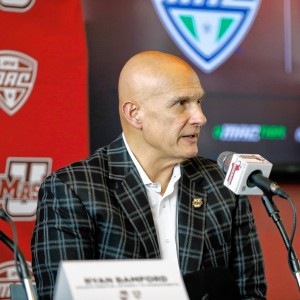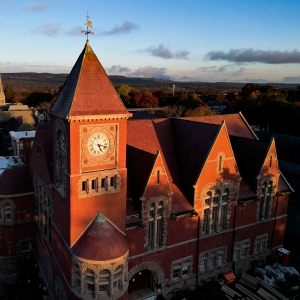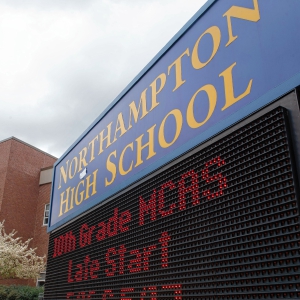Columnist Bill Newman: The high court’s supremely wrong decision
| Published: 07-10-2023 6:07 PM |
Here we go again. Last June the Supreme Court overruled a half-century of precedent and repealed the right to abortion. This June, the court again jettisoned a half-century of precedent, this time to gut affirmative action.
Let’s be clear. This is not a conservative court. Conservative justices respect precedent.
In this regard, note this uncontroverted statement by Justice Sonia Sotomayor in her dissent in the just-decided affirmative action cases against Harvard and the University of North Carolina: “It is a disturbing feature of today’s decision that the Court does not even attempt to make the extraordinary showing required (to overturn longstanding law).”
The majority did, however, write extensively about why it was fine to kill affirmative action. To understand the decision, we should spend a minute on Regents of University of California v. Bakke. That’s because Justice Lewis Powell’s opinion in Bakke was to affirmative action what Roe v. Wade was to reproductive choice. Here’s why:
It was 1973. Allan Bakke twice had been denied admission to the medical school at the University of California, Davis. The med school had adopted a set-aside of places in the entering class for Blacks. Bakke was white, and he sued. And he lost, 5-4.
In Bakke, four dissenting justices, like the majority in the 2023 case, opined that any consideration of race in admissions decisions violated Title VI of the 1964 Civil Rights Act and the Equal Protection Clause of the Fourteenth Amendment. (Title VI prohibits discrimination at educational institutions that receive public funds and unlike the 14th Amendment, applies to private, as well as public, institutions.)
Four other justices said exactly the opposite. Pointing to slavery, Jim Crow and the pervasive racism that followed, they argued that because the roots and branches of slavery had not been eradicated, colleges constitutionally could consider race a bit in admissions decisions to help alleviate the effects of continued discrimination. That’s what we call affirmative action, which Justice Sotomayor in her dissent describes this way:
“The Equal Protection Clause “enshrines a guarantee of racial equality.” Beginning in Reconstruction and as affirmed in Brown v. Board of Education, “the (Supreme) Court long ago concluded that this guarantee can be enforced through race-conscious means in a society that is not, and has never been, colorblind.” Striving for the equality that the Fourteenth Amendment promises “requires acknowledgment of inequality.”
Article continues after...
Yesterday's Most Read Articles
 More than 130 arrested at pro-Palestinian protest at UMass
More than 130 arrested at pro-Palestinian protest at UMass
 Public gets a look at progress on Northampton Resilience Hub
Public gets a look at progress on Northampton Resilience Hub
 Northampton bans auto dealerships near downtown; zone change won’t affect Volvo operation on King Street
Northampton bans auto dealerships near downtown; zone change won’t affect Volvo operation on King Street
 UMass basketball: Bryant forward Daniel Rivera to be Minutemen’s first transfer of the offseason
UMass basketball: Bryant forward Daniel Rivera to be Minutemen’s first transfer of the offseason
 Town manager’s plan shorts Amherst Regional Schools’ budget
Town manager’s plan shorts Amherst Regional Schools’ budget
 Police respond to alcohol-fueled incidents in Amherst
Police respond to alcohol-fueled incidents in Amherst
Affirmative action allows a limited consideration of race in a holistic evaluation of the applicant. It’s potentially a plus for some non-white applicants. That said, Harvard still rejects more than two-thirds of Hispanics and almost half of all African Americans who rank among the top 10% of the most academically promising applicants. UNC’s numbers are similar. Everyone admitted to both schools is eminently qualified.
Back to Bakke. Justice Lewis Powell, the fifth and deciding vote, wrote that the university admission criteria was legal and constitutional because it helped achieve the compelling governmental interest of diversity, a crucial educational benefit to all students.
Powell’s opinion stood the test of time. In the 2003 Grutter case, where the affirmative action admissions policies at the University of Michigan Law School were challenged, the court explicitly adopted his opinion in Bakke as the law of affirmative action. The reason: diversity matters. It mattered in 1973, and in 2003, and still does today.
But now that law is gone, not because the facts or law changed but rather because the justices have. Six justices reversed Grutter because fundamentally they don’t value diversity. And, cutting through all the verbiage, they also claim that white people are being discriminated against.
What an extraordinarily disingenuous claim! Those six unelected policymakers indicate no legal misgivings about, for example, legacy admissions, that is, admissions preferences for rich, overwhelming white applicants based on money donated by their relatives and their attendance at the institution, opportunities historically denied Blacks. Other preferences that help white applicants apparently are just fine, too.
In sum, the decision will, as the dissent points out, “cause a sharp decline in the rates at which underrepresented minority students enroll in our Nation’s colleges and universities.” The decision thus “subverts the constitutional guarantee of equal protection by further entrenching racial inequality in education.”
After the Supreme Court’s decision, three civil rights groups filed a complaint at the Department of Education challenging legacy admissions. At this time the outcome of that complaint is unknown, and in any event, studies show that banning legacy admissions would not come close to undoing the harm caused by the abolition of affirmative action.
Chief Justice Roberts, near the end of his majority opinion, says that colleges may consider applicants’ essays that describe “how race affected his or her life, through discrimination, inspiration, or otherwise.” Roberts then immediately admonishes colleges to not use such an essay to circumvent the court’s new prohibition on affirmative action.
How that tension will play out is anyone’s guess. Sotomayor viewed Robert’s permissible consideration of race as throwing a bone to the students, educators and communities who are the losers in this case. She characterized what Roberts said as “a false promise to save face … an attempt to put lipstick on a pig.”
Bill Newman, a Northampton-based lawyer and co-host of Talk the Talk on WHMP, writes a monthly column.
]]>

 Guest columnist Phil Wilson: Let us pick local town officials by sortition
Guest columnist Phil Wilson: Let us pick local town officials by sortition Karen Foster Cannon: Michael Stein does not speak for me
Karen Foster Cannon: Michael Stein does not speak for me Joseph Morse: So much to be thankful for
Joseph Morse: So much to be thankful for Letter: It's not Us vs Them
Letter: It's not Us vs Them
